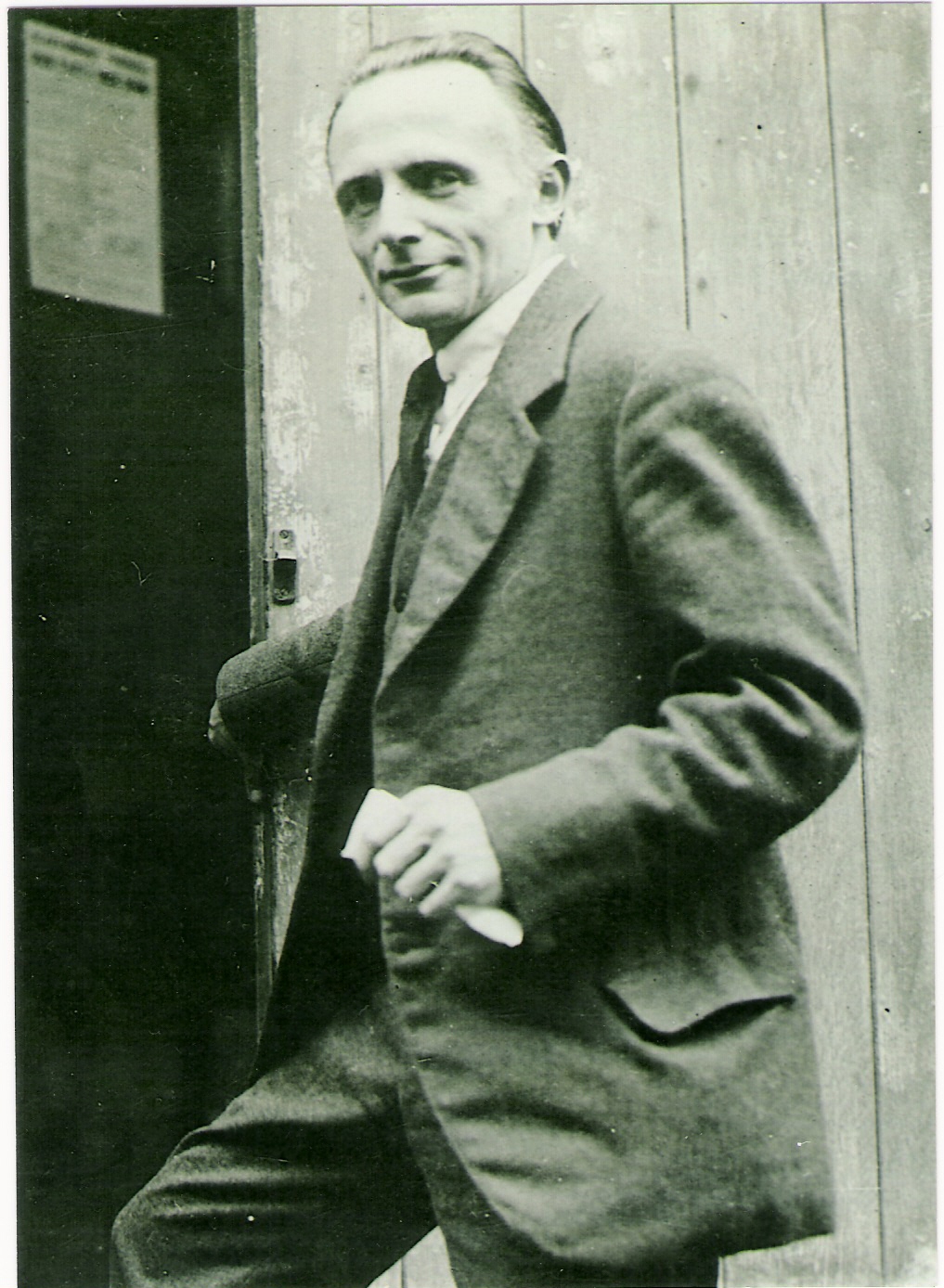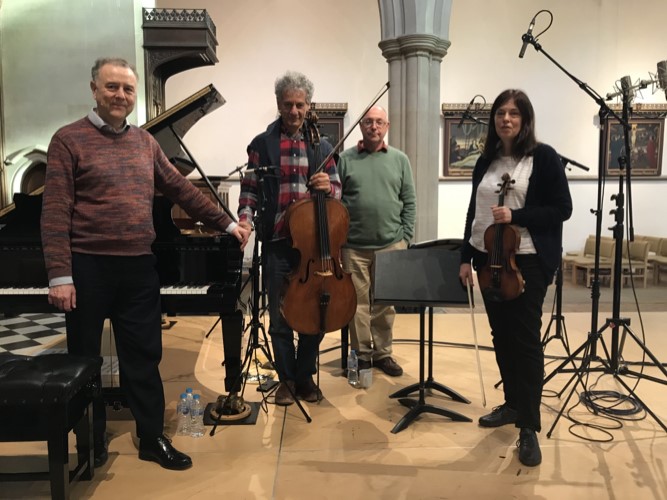The Royston Choral Society’s 50th season continues with a celebration of English music the theme for their June 2023 concert. As such, it’s timely indeed that a new CD makes available - much of it recorded for the first time - the music of an English composer, Rutland Boughton, whom few will know, with those who do claiming he has been largely overlooked by ‘the establishment’.
One such supporter is his grandson – Ian Boughton - soloist and choir member with Royston Choral Society. I sit down with Ian - my fellow choir member - to explore his grandfather’s legacy and, hopefully, bring his music to a new audience.
I, myself, am a newcomer to Rutland Boughton’s work and a first listen to the new CD - ‘Of Delights and Passions’ - immediately transported me back in time (the way great music can do) nearly 60 years to my own grandfather’s house where, on Sunday evenings, he always seemed to have the Palm Court Orchestra playing on the BBC Light Programme! But we are here to talk about Ian’s grandfather, not mine!
Ian recalls… “He was an interesting character with a very interesting personal life. He had three successive partners – but professionally, he was noted for the direction he wanted to take his music - to appeal to the masses. He was quite a different man to say Vaughan Williams and Elgar but not short of intellect or ability (he wrote widely on music for many publications as well as completing a book on Bach). He wanted his music to bring the people together – which explains his founding of the ‘original Glastonbury Festival’ – 56 years before Michael Eavis launched his!
“He was a man who sought tunes that would be memorable; this is reflected in the music that’s shared on the CD but the ‘Faery Song’ from his notable opera ‘The Immortal Hour’ became a household favourite in its day, and was performed many times on BBC radio and on TV and it was taught in schools, as now ‘mature’ pupils often tell me!. Examples of known tenors singing the song can be heard on YouTube.”
I’m intrigued to hear about Rutland Boughton’s creation of ‘choral dramas’. Ian continues “He was very influenced by Wagner - the concept of using choruses to help narrate the story but using the English, rather than the Germanic, style of music. His choral dramas, unlike conventional operas, even involved the chorus in being part of the scenery – as forests or castles for example.” The arboreal reference takes me back to my English O’level and Shakespeare’s ‘Macbeth’ in which, as some will know, Birnam Wood moved!
Ian goes on to make a bold claim – “At the height of his career in the 1920s and 30s, Rutland Boughton surpassed Vaughan Williams and Holst as one of the most talked about composers in this country.” Which leads me to the perhaps obvious question, why is his music not better known today – had he fallen out with the establishment?
“He didn’t so much fall out of favour with the establishment – he was ‘anti-establishment’ from his early days, and joined the British Communist Party. As alluded to earlier, he believed in music for the people and sympathised with the lower social classes; that classical music was too elitist, appealing only to a minority of society. He chose the Communist (or Commune) model to challenge this and, of course, in the 1920s and 30s this was frowned on heavily. He did resign from the Communist Party in 1956 over the Hungarian Uprising but he had already blotted his copybook when, in1926, he openly supported the Miner’s Lockout and General Strike through one of his productions. Thereafter he never recovered despite writing some wonderful music “
“Rutland was of course very outspoken – challenging BBC decisions not to share his music – and he refused to endear himself to the ‘right’ people. When his opera ‘The Immortal Hour’ reached a successful world record run in London in the 1920s and 30s members of Royalty would turn up, hailing him a hero but he didn’t like that! He felt it was a far cry from his original intentions and when he said so, people were puzzled and that was the start of his downfall.

Returning to Glastonbury – the location for Rutland Boughton’s musical festivals from 1914 to 1927, Ian has some interesting inside information… “Michael Eavis [the man behind the current Glastonbury Festival] always said he was highly influenced by grandad’s ideas – which partly explains the name of the current festival, which is actually at Pilton – six miles from Glastonbury.”
An illustration from Ian about funding of the (first) Glastonbury Festivals shows his grandfather’s resourcefulness in sustaining his life in music. “He tried to raise money from a national appeal and was almost successful but not enough to build a theatre [sounds like an early-day crowdfunding campaign]. He did however become friends with Roger Clark – part of the famous Clark family of shoemakers in Street (Somerset) - and they came to the rescue and in time because it was August 1914, the start of the World War. The ideals behind the first Glastonbury Festival would seem to chime with the Clark family’s Quaker values.”
We return to the launch of the CD and the coincidence of Royston Choral Society’s celebration of English music in their summer concert. Ian reflects on the case for sharing his grandfather’s music.
“There’s always been a need to get English music to the fore; it’s part of our national heritage. The only person who currently seems to be doing this is Em Marshall-Luck who set up the annual English Music Festival sixteen years ago [see https://www.englishmusicfestival.org.uk] to provide a platform for works by British composers and for music that people may not have heard before. The national broadcasters and other people seem to have limited interest – and there appears to be a shift away from an interest in British music of the late 19th century and early 20th century. Consequently, there are many British composers out there who remain neglected.

Ian is open to discuss his grandfather’s life and works. For further details about Rutland Boughton and the new CD – Of Delights and Passions – a mix of chamber music, performed by the English Piano Trio, contact Ian at [email protected]
 Royston Choral Society
Royston Choral Society